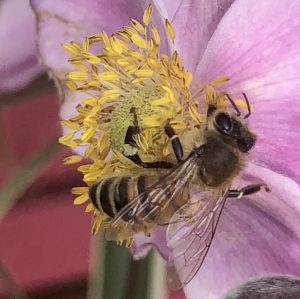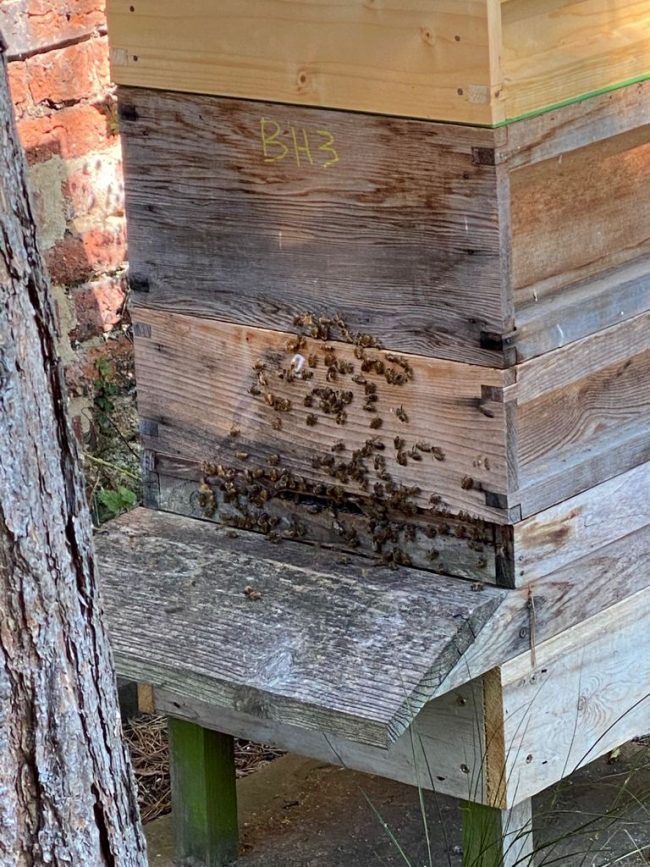Viruses, Varroa and honey bees.

Honey bees are often infected by the mite - Varroa. Mites are small arachnids. The varroa mite is an external parasite, attaching to the body of the bee and feeding from it. It also infects honey bees with various viruses, which further harm the bees.
One such virus is the deformed wing virus. Bees that are severely infected with this virus die within days, some have such poorly developed wings that they cannot properly forage for nectar and pollen. The virus also affects their ability to learn, so that if they forage they may not be able to find their way ‘home’. Lost bees die, the colony is deprived of food collected by such bees and the colony may collapse.
Eliminating the mite is difficult and the use of chemicals risks contaminating any honey collected from treated colonies / hives. However, researchers at the National Taiwan University have found a naturally occurring compound that may help alleviate the effects of the virus. The compound in question is sodium butyrate Na(C3H7COO). In a series of experiments, the research team found that bees that were fed sugar-water laced with butyrate were better able to resist the effects of subsequent viral infection. Compared to a control group that did not have butyrate, some 90% were still alive five days after infection whereas 90% of the control group died. The butyrate treatment also improved the bees’ ability to forage and return to the hive.
Further details of this work here.

Sodium butyrate is an inexpensive chemical, and if its benefits are substantiated then it could provide an affordable solution to the mite and virus problem that honey bees face.
Comments are closed for this post.

Sodium butyrate, a simple, biodegradable carboxylate, continues to do wonders. Now our honeybees can survive attack from germs (bacteria, viruses, you name it!). By the way, most of us need honey!!!
Tindo James
28 October, 2021